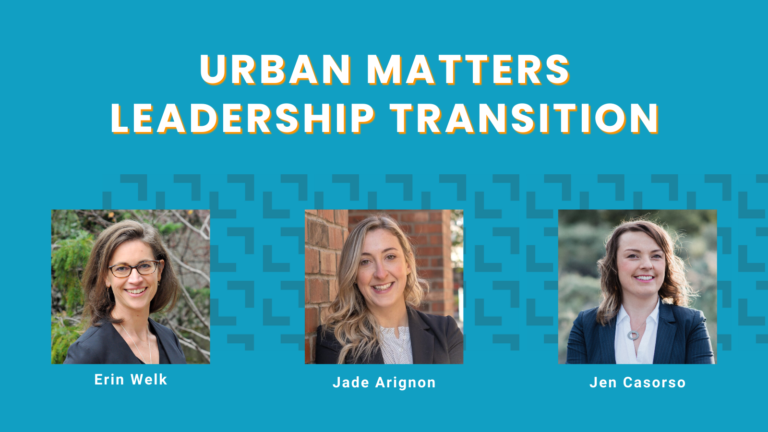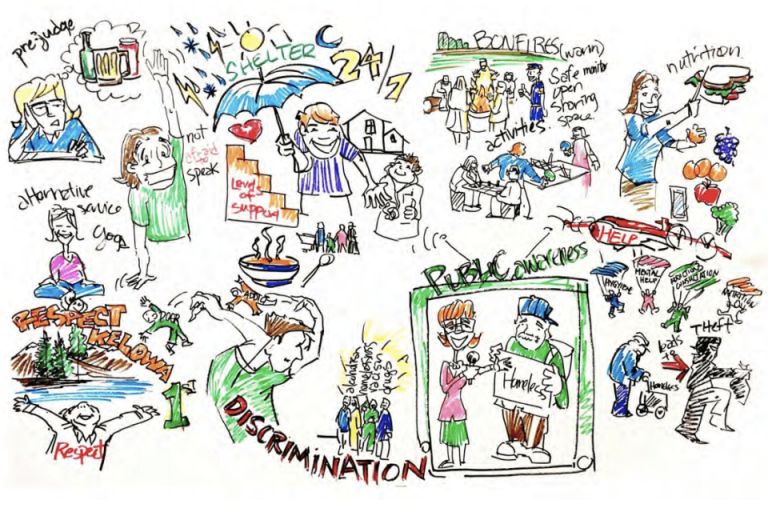4 May 2018
Case Study: Okanagan Transportation Partnering
Local governments are exploring innovative ways to both directly and indirectly deliver services to citizens that result in better outcomes for everyone. Communities are responding to a multitude of complex challenges – from housing affordability and homelessness and issues related to substance use and misuse, to establishing community resilience in the face of climate change and costly weather events, opportunities and disruptions resulting from technology and rapid workforce shifts. Citizens are demanding local governments respond rapidly to these and other dynamic challenges.
At the same time, we have an implementation gap in realizing the aspirations citizens are asking their community leaders to deliver. Motherhood statements like “create livable public spaces; embrace diverse transportation options; create opportunities for all citizens to participate in an inclusive economy…” are used to galvanize leadership and inspiration around common goals. Unfortunately, we don’t always see these goals realized, and we’re all contributing to a collective failure in follow through.
How can we start to bridge the gap to realize the socially inclusive and sustainable communities most citizens ask for? We think shifting how local governments align and partner in service delivery is part of the solution. In doing so we’re asking a fundamental question: who is best positioned to influence outcomes in Community?
Recently we’ve designed and are starting a project that tests these ideas to generate greater uptake of sustainable transportation options in the Okanagan. Establishing a network for getting around a community has long been a responsibility of government – our sidewalks, cycling corridors, greenways, transit systems, local roads and highways are key pieces of public infrastructure. But what happens when the provision of more infrastructure does little to measurably influence uptake? Nuanced work is required to establish a culture amongst citizens who embrace diverse and sustainable mobility. Can efforts be aligned between local governments and a diverse group of citizens, community organizations, institutions, and businesses to accelerate realization of diverse mobility options? Who isn’t involved currently who can influence outcomes? And what is the role of a local government to empower and accelerate community action? Our work is exploring these questions collaboratively with local government, community, institutional, and business perspectives.
Take OGO Car-Share Co-Op, based in Kelowna British Columbia. One of our earliest ventures we helped launch at Urban Matters CCC, OGO was jump started through bold participation from the City and other businesses. In 2013, car share programs weren’t seen to be viable or sustainable in mid-sized cities. OGO overcame early barriers by tapping different sources of assets and clients. OGO partnered with Urban Systems which repurposed its branch vehicle for the whole co-op and signed up employees as members. The City collaborated by contributing 4 city fleet vehicles to the fleet to be available jointly by City employees and co-op members. OGO is now a fleet of 13, and over 450 members, and recently been acquired by Modo, a larger member owned co-operative carshare based in Vancouver, Victoria, Nanaimo, and now Kelowna.
This project is exploring additional opportunities for community groups, businesses, and individual citizens to collaborate with the local governments to improve sustainable transportation services and increase citizen use of diverse mobility options – transit, walking, cycling, carshare, carpooling and more. Similar to the OGO example, we wonder what other opportunities might exist for local governments to shift service delivery or processes to support community innovation? There are untapped opportunities to engage diverse actors in the community, and for the City to foster innovative ideas getting to implementation.

Urban Matters CCC is supporting the City of Kelowna and regional partner municipalities in this highly collaborative and innovative approach to transportation demand management (TDM) – engaging with community partners to catalyze culture change in transportation. The City will provide leadership, and resource the creation of a framework, it turned to Urban Matters as a community facilitator with strong connectivity across non-profit, for profit, and institutional sectors in Kelowna. We’re drawing on our experience and understanding of community development – particularly local government service delivery; civic infrastructure; and land use development with our experience launching community ventures.
While our work on this initiative is only beginning, we will soon launch four ‘blocks’ of work: 1) a systems scan, identifying relevant community actors and best practices; 2) framework development that supports culture change 3) partnership strategy; and 4) establishing and testing partnering opportunities. Engagement and facilitation is woven throughout.
In this project we’re excited to look beyond transportation and mobility fields to other groups, businesses, or institutions that may have aligned interests – we intend to look at engaging with everything from cultural groups, to faith organizations, business groups, public institutions, housing organizations, and more. Arming our diverse stakeholder groups with ideas and best practices from other jurisdictions we’ll then work to facilitate the co-creation of community led strategies and identification of key partnerships, exploring the ideal role of the local government throughout.
This type of engagement is precisely where our Advisory Services team works best – community led, local government supported, multi-stakeholder co-creation. Many of the opportunities for the Applied Social Innovation that we practice manifest as partnering opportunities between and across sectors. It is in these unlikely spaces that transformative solutions emerge. Support from a partner like the City can help magnify the impact of knowledge, skill, and wisdom embedded in various community actors – from business, to charitable and non-profit organizations, social enterprise, and public institutions. Local governments can benefit substantially from this type of collaborative approach as well, shifting their approach to service delivery, with potential implications on budget, infrastructure costs, citizen and community organization engagement, and realization of community vision.
We commend the City of Kelowna for taking leadership and embarking on a truly collaborative path for impact in their community, an approach that can be applied beyond transportation. While the details of the project may change as the project progresses (we’ll keep you posted), the goal will remain the same, and so will our approach: bringing the right actors to the table, convening dialogue, facilitating co-creation, and always looking for opportunities to innovate.
For more information:
Erin Welk, Civic Social Innovation Lead. ewelk@urbanmatters.ca



